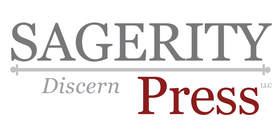
Now, years later, as a member of the corporate investigations profession, I teach the value of the throwaway line. It is a brief thought thrown over the shoulder at the conclusion of an investigative interview after notebooks and computers are packed away and everyone is about to leave. The interviewee has suppressed the thought throughout the entire conversation but, consciously or subconsciously, he can no longer hold it in. The words only hint at truth, but the hint contains the key to a matter.
The line has no context.
A throwaway line may be, “And I don’t know how he did all that snow plowing anyway,” uttered after an investigative interview that has nothing to do with snow plowing. The investigator follows the clue and finds that the company in question fraudulently billed for plowing snow at hundreds of sites, many of which had no parking lots.
The ancient Biblical book of Job is filled with throwaway lines that leave quiet, but unmistakable, clues to the mystery of a suffering man whose story has confounded God followers for generations. The clues are part of an extraordinarily skillful undertaking by the author to teach the reader to “test” a person’s words. For unraveling the mystery and powerful message of the book of Job requires a keen understanding of human nature and the gift of deciphering intentions. The investigative profession is skilled in this craft—and detecting throwaway lines is only one of its tools.
The Joy of Job, An Investigator's Perspective on the Most Righteous Man of Earth, draws on multiple investigative tools to uncover the profound message of holiness intended for this time.
The line has no context.
A throwaway line may be, “And I don’t know how he did all that snow plowing anyway,” uttered after an investigative interview that has nothing to do with snow plowing. The investigator follows the clue and finds that the company in question fraudulently billed for plowing snow at hundreds of sites, many of which had no parking lots.
The ancient Biblical book of Job is filled with throwaway lines that leave quiet, but unmistakable, clues to the mystery of a suffering man whose story has confounded God followers for generations. The clues are part of an extraordinarily skillful undertaking by the author to teach the reader to “test” a person’s words. For unraveling the mystery and powerful message of the book of Job requires a keen understanding of human nature and the gift of deciphering intentions. The investigative profession is skilled in this craft—and detecting throwaway lines is only one of its tools.
The Joy of Job, An Investigator's Perspective on the Most Righteous Man of Earth, draws on multiple investigative tools to uncover the profound message of holiness intended for this time.
